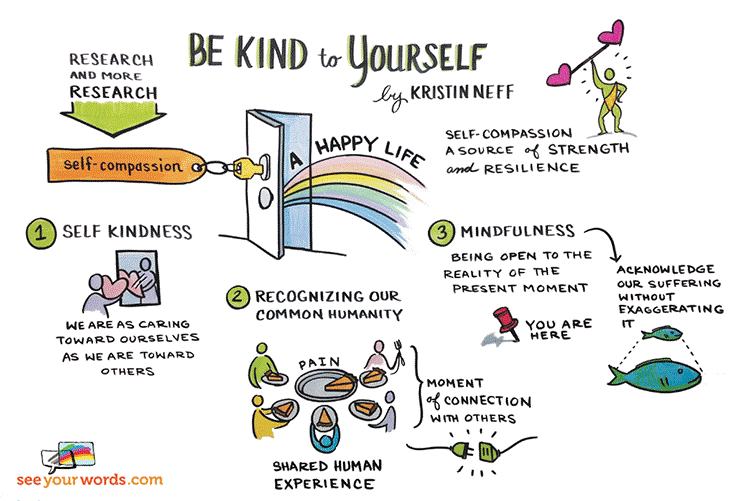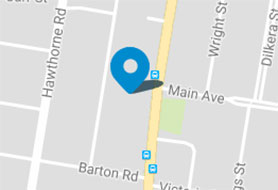
The work of parenting involves caring for and meeting the needs of another human being 24 hours a day, seven days a week. And like all demanding professions, burnout is a hazard of the job. That’s why parenting magazines and well-intentioned friends recommend taking care of yourself in order to be a better parent – the old, “put the oxygen mask on yourself before assisting others” line.
It’s good advice, but easier said than done. “Pamper yourself. Plan downtime. Exercise. Make a date night.” Suggestions like these have two big problems: First, you need free time (which is always hard to come by), and these ideas are really only helpful to you when you’re away from your child. Sometimes you need taking care of in the moment and the answer may be practising self-compassion.
What is self-compassion?
We are all used to working on our self-esteem by asking ourselves, “Am I being a good parent or a bad parent?” The problem is that having high self-esteem is contingent upon experiencing success. If we don’t meet our own standards, we feel terrible about ourselves. Self-compassion, in contrast, is not a way of judging ourselves positively or negatively. It is a way of relating to ourselves kindly and embracing ourselves as we are, flaws and all.
There are three core components of self-compassion:
Treating ourselves with kindness:
When we fail to meet our own standards, we are often much harsher and more cruel to ourselves than we ever would be to a friend, or even someone we don’t like very much. Self-compassion reverses that pattern.
In moments of difficulty or when making mistakes (especially when making mistakes), you treat yourself as you would treat a good friend in the same situation – with encouragement, sympathy, patience, and gentleness.
Recognizing our common humanity:
When something goes wrong, we often view it as abnormal. “I shouldn’t have taken so long to get ready in the morning, making my daughter late for school. Parents like Karen are always on time.” You end up feeling isolated in your suffering when, in fact, our imperfections are exactly what connect us all. Self-esteem prompts us to ask, “How am I different than others?”
Self-compassion involves wondering, “How am I the same?” And the answer is that we are all imperfect. There are probably many moments when Karen makes a mistake or gets things wrong, and that’s what makes you both humans and mums.
Being mindful:
In order to be compassionate to ourselves, we need to be able to recognize that we are suffering. Paying attention to how we talk to ourselves and treat ourselves in challenging moments lets us see that we are hurting and that we need to give ourselves love, too. Think of all the self-inflicted turmoil and stress we cause by constantly criticizing our imperfections: “I’m such a slob and the house looks like a pigsty.” or “I’m too bad at math to help my son with his homework.”
Once we notice and become aware of how painful and counterproductive these self-attacks are, we can take another approach – being kind and supportive to ourselves when we don’t meet our parenting ideals.
To read the article in its entirety go to the link below. Source: Neff, Kristin (2018, October 19). The Newest Parenting Skill: Self-Compassion Retrieved from https://www.seleni.org/advice-support/2018/3/21/the-newest-parenting-skill-self-compassion





